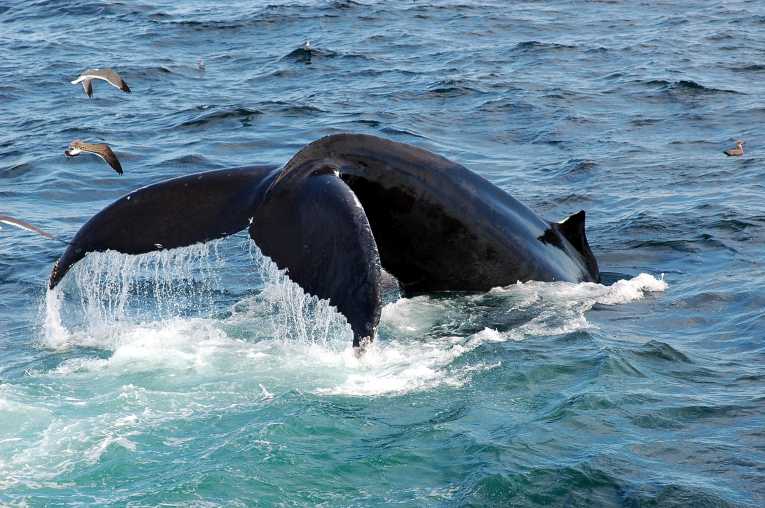The World Wildlife Fund (WWF) is asking members of the International Whaling Commission (IWC) to step up to the plate, and show 'leadership', in moving forward of cause of whale conservation. The urgency of the case for tackling threats to the survival of cetaceans is reinforced by a backdrop of an increasingly hostile oceanic environment for these marine mammals, says the WWF.
The annual tussle of wills over the future of whales and the dolphins resumes this week, as the IWC meets for the 63rd time in Jersey, in the UK's Channel Islands. Whilst previous meets have been beset by allegations of vote-rigging, and deadlocked on the issue of the whaling moratorium, first agreed in 1986, the WWF believes it's time for the IWC to move on.
Urgent actions on helping whales deal with threats other than whaling are needed, if the mandate of the IWC, for "the proper conservation of whale stocks" is to be realized. "In the 21st century whales the world's oceans are in crisis. Oil and gas operations, shipping, and irresponsible fishing are decimating several whale and dolphin species," said Wendy Elliott, who heads the WWF delegation to the IWC meeting.
"The IWC must become more effective in dealing with vast number of threats to whales in our oceans and seas. This will be a challenge, but is also an opportunity for the IWC to become a modern and effective body."
That last comment is a reflection on the proposals put forward by the UK, to increase the transparency of the IWC's procedures. Both sides of the IWC, which is riven into pro- and anti-whaling factions, have been accused of underhand dealings to buy votes over the decades. In order to put a halt to those 'bags of cash' allegations, the UK has put forward the idea of membership dues being paid through registered bank accounts, so closing the cash loophole.
But the WWF also sees some very specific action that can be taken now to aid the most threatened of whale species - especially the western North Pacific gray whales, found off of the coast of Russia's far East. Whilst these waters are depleted in whales - there may be as few as 130 of these cousins of the far more numerous Californian gray whales left - they are rich in oil and gas resources.
Action to partially restrict the noisy exploration activities in one area, during the summer feeding season is welcomed as 'bold'. But the WWF would like to see similar measures applied across the whole feeding range of these endangered whales. The issue of noise pollution is one that all governments need to look towards dealing with, as whales increasingly struggle to make themselves heard in the ocean's human-sourced din.
There is also a call for action to help avoid ship strikes, particularly in the upcoming Polar Codes, which set out to regulate the safest ways to operate ships in the frozen waters, at either end of the planet. A needless tragedy for the whales, and a danger to shipping, this may be one area where the IWC can still prove it is still relevant.
'Governments must grasp the opportunity to improve the IWC's effectiveness with both hands - any failure to do so will further relegate the IWC into the past,' Elliott said.
Top Image: Humpback Whale Breaking Surface © romankuryluk










